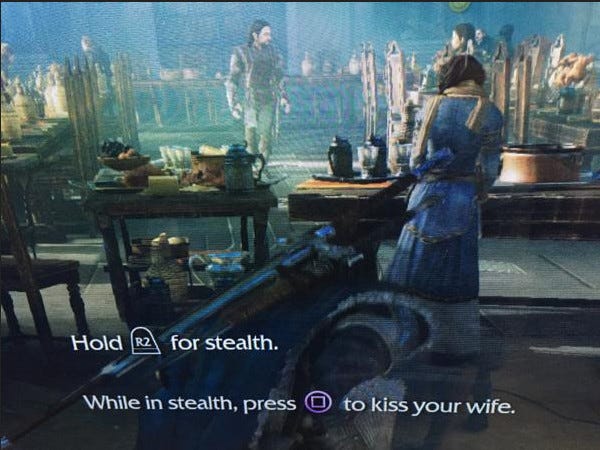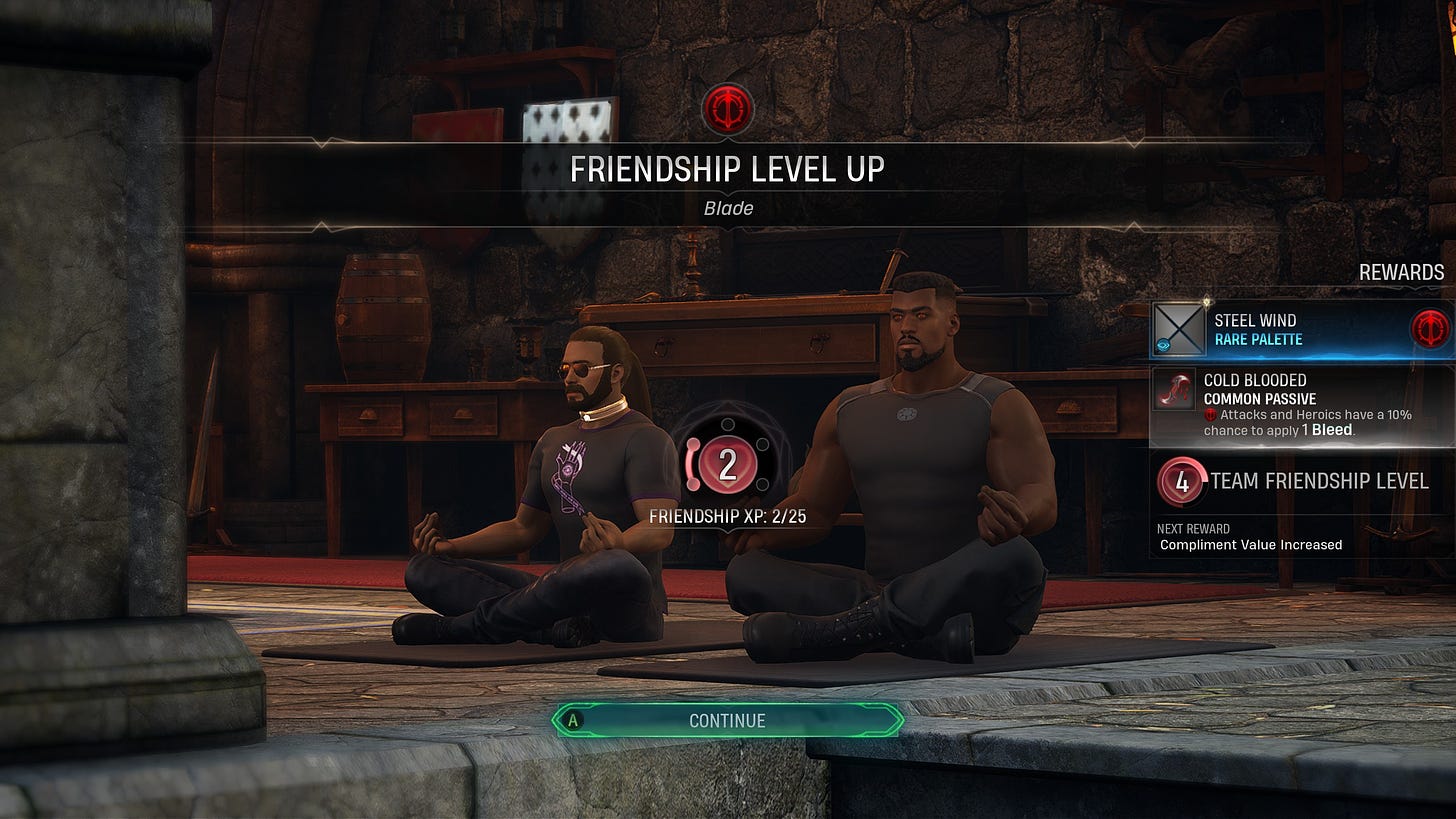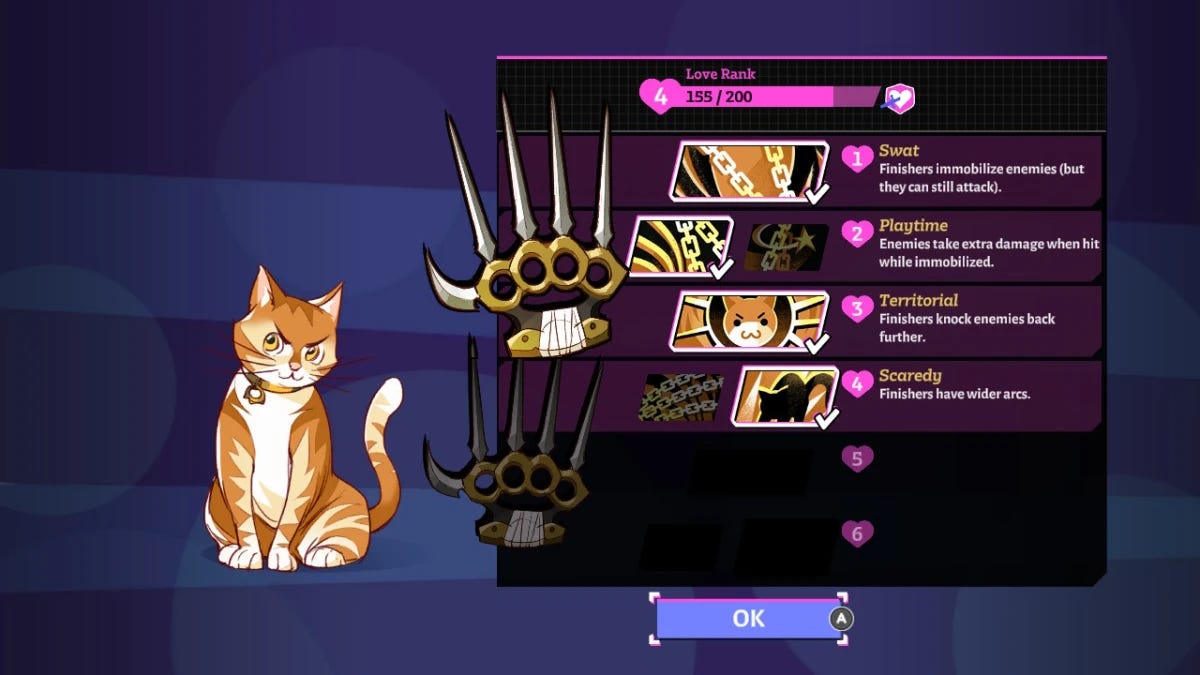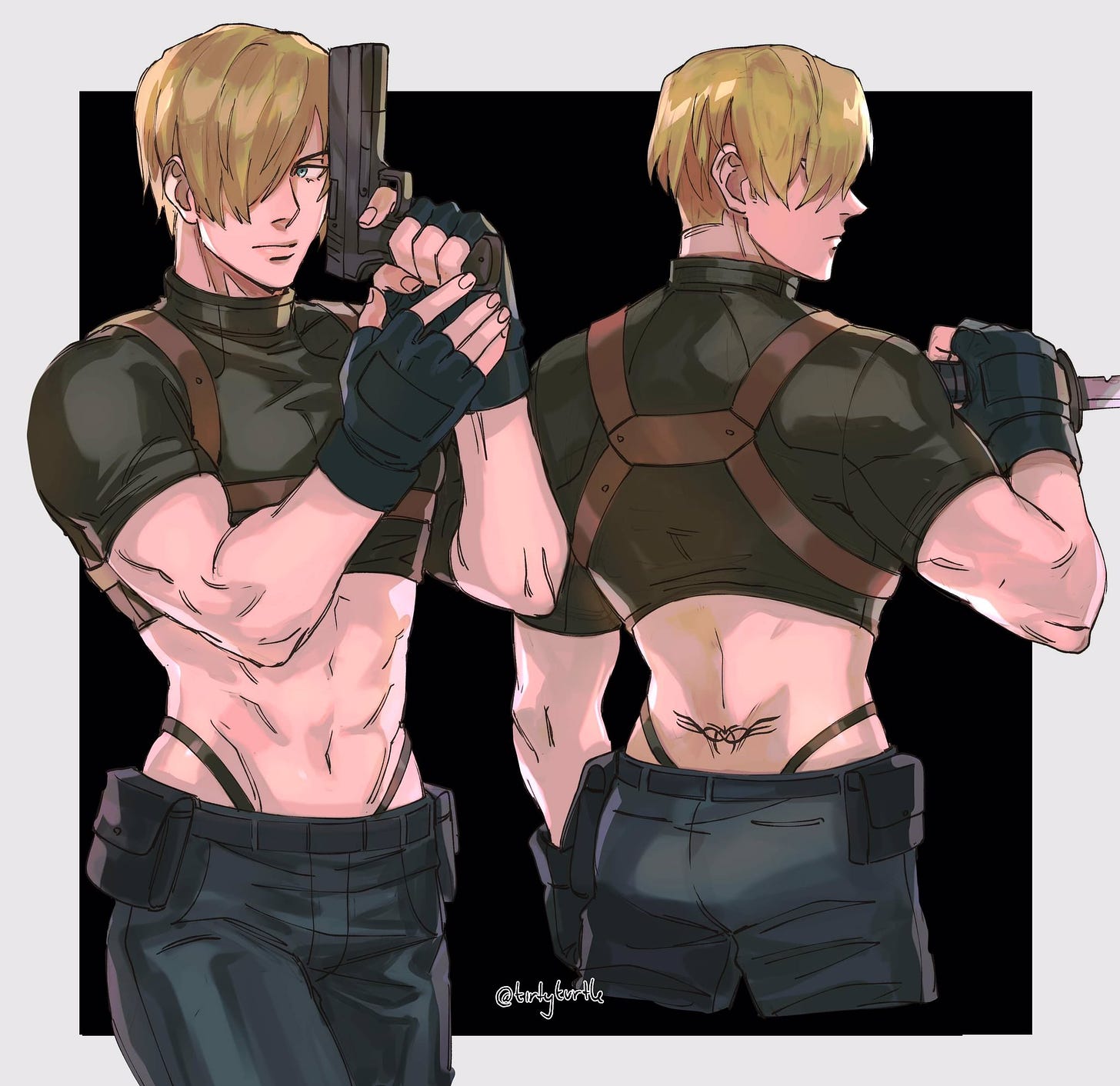Almost a month ago, I received a newsletter from veteran game designer Jeff Vogel titled “The Heart of Gaming is the Power Fantasy.” His company Spiderweb Software has been surviving as a completely independent game developer for over 30 years, which gives him an extraordinarily rare perspective on the games industry.
Mr. Vogel is well-known for his at times controversial stances, but I think he opens this article in a very strong way:
Video games function best as power fantasies. This is a statement that can generate controversy, though fifty years of video game history show that it is true. […] Yet, relentlessly, through it all, the most popular and beloved games are almost universally about the exercise of power.
I’ve been thinking about this statement a lot and how it relates to adult gaming.
What’s a power fantasy, anyway?

In real life, you’re probably not a Gondorian Ranger who bonded with the wraith of the Elf Lord Celembrimbor, but you can play as one in Shadow of Mordor. And no matter your actual physical strength, your sword hits just as hard as everyone else’s when you press (X) on your controller. The game’s power fantasy then is being able to perform violent actions that would otherwise be frowned upon, like hitting orcs on the head with your sword until they die.
But games do not require violence for them to be power fantasies. Whenever you change your environment in a game, you fulfill a power fantasy. Whether that’s bonking orc heads in Shadow of Mordor, setting traffic policies in SimCity, or making characters kiss in Dragon Age.
Adult games as power fantasies
When you play an adult game, you fulfill a power fantasy as well. No matter your real-life physique, gender, or sexuality, you can make characters fall head over heels for you in Boyfriend Dungeon, and of course date multiple of the characters at once. Nobody bats an eyelash at these actions in the game; that’s the fantasy it provides.
In adult games, you have the power to forge relationships between characters in any way that you desire. There may be obstacles to overcome to keep things interesting, but you will likely be able to pick a route that suits you best.
That’s why polyamory is so common in adult games and why many characters are written as casually bi or straight-up pansexual; why deny players the opportunity to get off in a way that works best for them?
Designing around Sexual Vending Machines
Suffice it to say that I find Vogel’s lens of looking at games as power fantasies to be very useful. But what’s gnawing at me in the back of my head is the excellent book Passion and Play about adult game design. I wrote an in-depth review of the book last year, and one of the ideas the book brings forth is the concept of a Chemistry Casino design for romance and relationships.
The book draws a contrast between a game design that uses Kindness Coins versus one using a Chemistry Coins design. The first is your stereotypical dating sim game design: In order to get characters to like you, you keep doing nice things for them. First, you talk to them about their interests, then you give them gifts, and finally, you take them on dates. The criticism against this kind of design is that it treats characters kind of like Sexual Vending Machines: You keep putting coins in until your desired outcome rolls out, which is usually sex with hot women.
What a Chemistry Casino game design does then is do away with these types of “relationship bars.” It puts the desires of the characters in the game front and center. Instead of responding to direct stimuli, a character could respond positively or negatively to how you dress up your avatar or your actions during a mission.
From a game design perspective, this is very difficult to pull off. How do you make it clear to a player that their actions influence their relationships with other characters in such a subtle way? And how do you avoid player frustration when they can’t romance the characters they want? Worst of all, how do you communicate what’s going on to the player? The book does not dive too deeply into these questions because it’s ultimately about game design, not implementation.

If we apply Vogel’s lens to the question of why a Kindness Casino game design is so difficult to pull off, namely that all (successful) games are power fantasies, we can see what’s going on here. By making the player’s actions less direct, we are removing part of the player’s power fantasy of being able to steer characters and relationships to get what they want from them.
And this lens works for all kinds of supposedly more “innocent” games about relationships between characters, for example, The Sims and Stardew Valley. My wife will absolutely have her Sims chat with the new neighbor until they’re friendly, hug until they’re close, and finally, Woo-Hoo them. All in the same in-game day. That’s her fulfilling the power fantasy of controlling the social relations between characters.
Yes, there are awkward implications to being able to bludgeon NPCs into doing what you want at all times, but ultimately that’s what players are looking to get out of adult games. Jeff Vogel summarizes it this way for the action and strategy games he makes:
Steakhouses sell steak. Barbershops sell haircuts. We sell victory. It's not real, it's fantasy. But it feels real, and that's enough. There are other routes to profit making video games, but you have to work very hard to find them.
Life is already a complicated enough game for people to navigate; we game developers don’t have to make people jump through hoops to get their favorite blorbos to smooch. They’re here for steak; our job is to ask them how bloody they want it!
Conclusion
I don’t think Jeff Vogel’s idea that all games are power fantasies is immune to criticism. But this framing did shake some things loose in my head. I’ve been struggling to design and build my own adult game for well over five years now. That’s not just because I don’t work on my game full-time; it’s just really freaking hard. Adult games are a very interesting design challenge: How do you design a video game that is fun and sexy at the same time? I’ll let you know if I ever figure it out, but in the meantime, I will keep smashing my action figures together.
Writing Wrap-Up 📖
Romance visual novel A Sex Slave’s Love Story is now available on Steam. A young woman raised in a brothel is used as a bargaining chip by her adoptive father to increase his influence.
Training simulator The Dorm Is Yours! was released on DLSite. Take care of a dorm of mages during an unending trial period where you’ll have to please the students to keep your job.
Yuri visual novel GOOD LUCK BABY! is now available on Steam. High schooler Hifumi wonders what she did to deserve unrelenting misfortune until she meets a sunny delinquent with a heart of gold.
Blerdy Otome writes about My Alien Roommate. When an alien boy lands on your balcony one uneventful Sunday night, Riley’s world is instantly turned upside-down.
Side-scrolling tower defense Murasakimori Ritual was released on DLSite. Collect sperm from the monsters that come in waves to prevent you from performing a ritual in the forest.
Cheeky chuckle 🤭






Artist spotlight 💡
Thanks for reading this far!
If you want to help me compile the newsletter, feel free to poke me on Twitter.
Until next time!
-Mr. Hands









I basically agree with Jeff. I play a lot of strategy games where I take over a planet or the entire galaxy. I'm playing a game now where I've led my NFL team to 30 straight Super Bowl wins. Those are complete power fantasies. For adult games, I always think of a harem ending as being the true ending. If they don't have a harem ending, I generally think they should. I remember seeing an interview with the developers of Koihime Musou. They said that canonically all routes are assumed to happen at once. In other words, a super harem. But for gameplay reasons they had to put limits in place. I thought that was a really interesting take - they wanted to give even more of a power fantasy to the players than they ended up doing. Games like the Mass Effect series where the developers set up the player to be able to have a harem and then script it so it goes horribly wrong (like it probably would in real life) are shocking to me. And that "more realistic" method has never helped my opinion of the game, because it seems anti-player. I think the chemistry casino idea could work great, but I haven't played many games that incorporate many of those concepts. About the best I get along those lines is where the player isn't exactly picking a partner. But their actions lead them to be with a specific character because A) the other characters can't get along with each other for some reason or B) the player needs to travel in a very small group which eliminates other characters from the story.